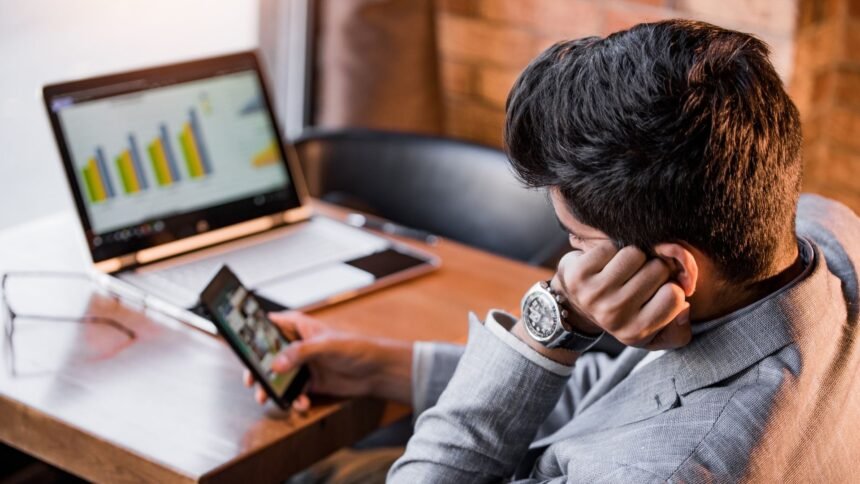In our hyper-connected world, screens dominate our daily lives—smartphones, laptops, TVs, and tablets keep us tethered to work, social media, and endless notifications. While digital devices offer convenience and connection, excessive use can lead to stress, anxiety, sleep issues, and a sense of disconnection from real life. A “digital detox”—intentionally reducing screen time—can restore balance and boost mental and physical wellness. Drawing on recent research, expert insights from medical professionals, and practical strategies, this blog explores the impact of digital overload and provides a doctor-approved guide to detoxing from devices while maintaining a healthy, balanced life.
The Impact of Digital Overload: Why a Detox Matters


Constant device use overstimulates the brain, triggering the release of cortisol (stress hormone) and dopamine (reward chemical), which can create a cycle of dependency similar to addiction. Research highlights the toll:
- Mental Health: A 2024 Journal of Behavioral Addictions study found that >3 hours/day of non-essential screen time increases anxiety and depression risk by 25-30%, particularly in adolescents and adults. Social media can fuel comparison and FOMO, amplifying stress.
- Sleep Disruption: Blue light from screens suppresses melatonin, delaying sleep. A 2025 meta-analysis showed >1 hour of evening screen time raises sleep problems by 20%, linked to mood issues.
- Physical Health: Prolonged screen use is tied to eye strain, neck pain, and sedentary behavior, increasing risks for obesity and heart disease.
- Relationships and Productivity: Excessive device use reduces face-to-face interaction and focus, with 40% of workers reporting digital distractions harm productivity, per a 2023 study.
A digital detox—reducing or restructuring screen time—helps reset the nervous system, improve mood, and restore balance. It’s not about eliminating devices but using them intentionally.
Expert Insights: What Doctors Say About Digital Detox
Medical professionals emphasize that digital overload taxes the brain and body, but a balanced approach can mitigate harm:
- Dr. Anna Lembke (Stanford, Addiction Specialist): Author of Dopamine Nation, Lembke explains that screens hijack the brain’s reward system, creating compulsive use. She advocates for scheduled breaks to reset dopamine levels, improving focus and mood.
- Dr. Dimitri Christakis (Pediatrician, AAP): Notes that excessive screen time overstimulates the brain, especially in children, increasing anxiety and attention issues. He recommends structured detox periods to foster real-world engagement.
- Dr. Lisa Damour (Psychologist): Highlights that digital detoxes reduce stress by encouraging mindfulness and presence. She suggests replacing screen time with activities like exercise or journaling.
- 2025 Lancet Digital Health Review: Found that reducing recreational screen time by 1-2 hours/day lowers stress and improves sleep quality by 15-20%, with benefits compounding over weeks.
Signs You Need a Digital Detox
How do you know if digital overload is affecting you? Look for these red flags:
- Mental and Emotional: Feeling anxious, irritable, or overwhelmed after prolonged screen time; difficulty focusing or constant need to check devices.
- Physical: Eye strain, headaches, or disrupted sleep; fatigue despite rest, linked to cortisol spikes.
- Behavioral: Neglecting hobbies, relationships, or work due to scrolling; guilt or shame about device use.
- Social: Feeling disconnected from loved ones or comparing yourself to online personas.
If these resonate, a detox can help recalibrate your relationship with technology.
How to Detox from Digital Devices: A Doctor-Approved Plan
Here’s a practical, evidence-based guide to detoxing, inspired by medical experts and tailored for sustainable balance:
- Assess Your Usage:
- Track screen time using apps like Screen Time (iOS) or Digital Wellbeing (Android). A 2024 study found awareness of usage patterns reduces compulsive use by 20%.
- Identify triggers (e.g., boredom, notifications) to target specific habits.
- Set Clear Boundaries:
- Time Limits: Follow AAP guidelines—limit recreational screen time to 1-2 hours/day for adults, less for kids.
- Screen-Free Zones: Ban devices from bedrooms, dining areas, or during family time to protect sleep and connection.
- No-Screen Hours: Avoid screens 1-2 hours before bed to restore melatonin production.
- Curate Your Digital Environment:
- Mute notifications or use “Do Not Disturb” to reduce distractions. Studies show this cuts stress by 15%.
- Unfollow accounts that trigger negativity or comparison; curate feeds for positivity or learning.
- Use grayscale mode on devices to make screens less appealing.
- Replace Screen Time with Meaningful Activities:
- Exercise: 30 minutes daily (e.g., 7,000 steps) reduces stress and boosts mood, per 2024 research.
- Mindfulness: Practice meditation or journaling. Apps like Headspace guide beginners, reducing anxiety by 20%.
- Social Connection: Spend time with loved ones or engage in hobbies like reading or cooking to foster joy.
- Gradual Detox Plans:
- Short-Term: Try a 24-hour screen-free day weekly, focusing on offline activities. A 2023 study showed this improves mood by 25%.
- Long-Term: Gradually reduce daily screen time by 30 minutes/week, aiming for balance, not elimination.
- Tech Breaks: Schedule 10-minute breaks every hour of screen use to rest eyes and mind.
- Model Healthy Habits: If you’re a parent, set an example—kids mimic parental screen use. Co-engage in educational content to make tech time productive.
When to Seek Professional Help
If digital overload leads to persistent anxiety, depression, or sleep issues (e.g., lasting >2 weeks), consult a doctor or therapist. Signs include inability to cut back despite trying, withdrawal from relationships, or physical symptoms like chronic fatigue. Cognitive Behavioral Therapy (CBT) or addiction counseling can help, with 70-80% improvement rates for compulsive tech use. Resources like the Anxiety and Depression Association of America (ADAA) or SAMHSA offer support.
Conclusion: Reclaim Your Life with a Digital Detox
Digital devices are tools, not masters. Excessive use can spike stress, disrupt sleep, and strain relationships, but a doctor-approved digital detox—through boundaries, mindful activities, and gradual reduction—can restore balance. Experts like Dr. Lembke emphasize intentional tech use to protect mental health. Start small: try a screen-free evening or mute notifications today. Your well-being is worth it. Resources like ADAA or mindfulness apps can guide you. What’s one detox step you’ll take? Share below to inspire others!


